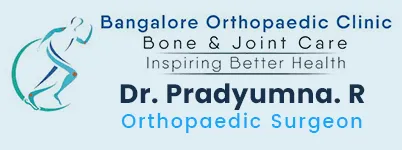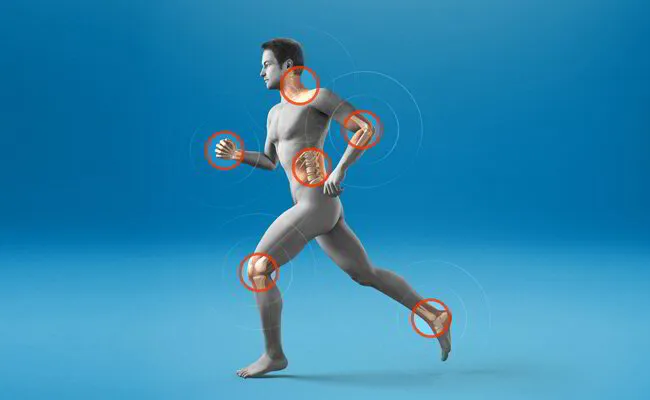Bone mineral density test or simply a Bone density test is used in determining the amount of minerals especially the calcium in your bones. This determination usually helps the doctor to determine whether you are at risk of osteoporosis or not. Osteoporosis is one of the most common bone diseases that usually leads to thinning or weakening of bones making them prone to fractures. This disease is commonly seen in women and older adults.
Bone density test also known as dual-energy X-rays absorptiometry is done with the help of X-rays and usually, bones of the spine, hip, and forearm are tested during this test as these are usually the segments of bones that tend to get fractured during Osteoporosis.
WHO NEEDS THIS TEST?
Women who are 35 years and older especially the ones who are the age of menopause
Men who are at the age of 40 years and above.
- If you have lost 1.5 inches or more of your height.
- If you have broken a bone after 50 years of age or had a fragility fracture that is when bones break becomes so fragile that they break just because of a strong cough or sneeze.
- If you have chronic back or joint pain.
- If you have been taking drugs especially pain-relieving drugs for a long time.
- If you have been suffering from thyroid.
- If you have had a drop in hormone level.
- If you smoke, consume tobacco or three or more alcoholic beverages per day.
- If you have a very inactive lifestyle where you hardly do any physical activities especially weight lifting activities.
Osteoporosis is one of the diseases that usually have no symptoms so if you fall into any of these categories do get yourself checked as precautions are always better than cure and it is better for you to get yourself treated before your lack of bone density turns into an irreversible fracture.
TYPES OF BONE MINERAL DENSITY TEST:
Bone Mineral Density test is usually of two types that are as follows:
Central DXA:
This test majorly involves the X-rays examination of the bones around your torso, such as hip and spine. During this test, you have to lie down fully clothed on a platform while a machine arm passes above you examining your body with the help of X-rays. This test usually takes around 10-15 minutes for the whole examination and is considered to be more accurate and costly than the Peripheral DXA.
You don't have to worry about these X-rays as the density of these X-rays is low.
Peripheral DXA:
This test usually involves an examination of the wrist, finger, and heel. This test is done by a portable device that can be bought at any pharmacy and is less accurate and cheaper than the Central DXA.
If you show any sign of Osteoporosis in Peripheral DXA, you will need to get a Central DXA done for accurate determination of Osteoporosis. But still, Peripheral DXA is a great option for people with a heavyweight.
Is it painful?
The Bone Mineral Density Test is quite different from bone scans as it doesn't require any injections and is totally a painless procedure that hardly takes 15 minutes.
HOW TO PREPARE?
Avoid taking any type of calcium supplements during the last 24 hours before the examination
Wear comfortable clothes and avoid clothes with any metal element such as buttons, belts or zippers.
If you have had barium injection, or contrast dye for a CT scan or MRI in the past few days then do discuss it with your doctor as you might have to wait for 7 days after the injection to get an accurate Bone Mineral Density test.
Don't wear any kind of jewellery or carry any kind of metal with you.
HOW TO ANALYSE YOUR RESULTS?
The result of this test is usually shown in two kinds of scores: T-score and Z-score.
T-score: This score usually tells you whether your bone density is normal, below normal or are you already suffering from Osteoporosis, by comparing your bone density with that of a normal healthy adult.
T-SCORE CAN BE INTERPRETED AS FOLLOWS:
-1 or above
This score indicates that the condition of your bones is normal and healthy.
-1 to -2.5:
It indicates that the condition of your bones isn't that good and you are definitely at the risk of suffering from Osteoporosis in the upcoming future.
-2.5 and below:
This is the worst score as it indicates that you are likely suffering from Osteoporosis.
Z-score: This score compares your bone density with that of a person of the same age, sex, weight, and ethnic or racial origin as yours, and tells you whether your bone density is higher or lower than the average.
Even if you aren't showing any sign of Osteoporosis make sure you get yourself tested in the span of every 2 years, especially if you are a woman who has already crossed her menopause or an adult who has been living a sedentary lifestyle for a long time as precautions are always better than cure.
At Bangalore Orthopaedic Clinic, we conduct monthly BMD camps where you can avail the facilities at lowest cost. The camp day will also give you an opportunity to get a free orthopedic consultation with Dr. Pradyumna R one of Best Orthopedic Doctor in Bangalore as well get a Digital X Ray done as part of the BMD camp package.
Get Your Bone Health Assessed & Avoid Risks at Bangalore Orthopaedic Clinic - Orthopedic Near me.
To register, call or WhatsApp us on +91-9113025188.
Upcoming Bone Mineral Density Camp: Date: Sept 26, 2021
Time: 10 AM to 2 PM
Dr. Pradyumna R MBSS, MS (Ortho), FASM
Chief Orthopedic Surgeon &; Sports Medicine Specialist
Venue: Bangalore Orthopaedic Clinic
399, 7th cross, KEB Colony, BTM 2nd Stage, Bengaluru-560076
Landmark: Next to Nandi Homeopathy
Map Location: https://goo.gl/maps/RJixa7Z5EJJXWJyr7
Website: www.drpradyumna.com

